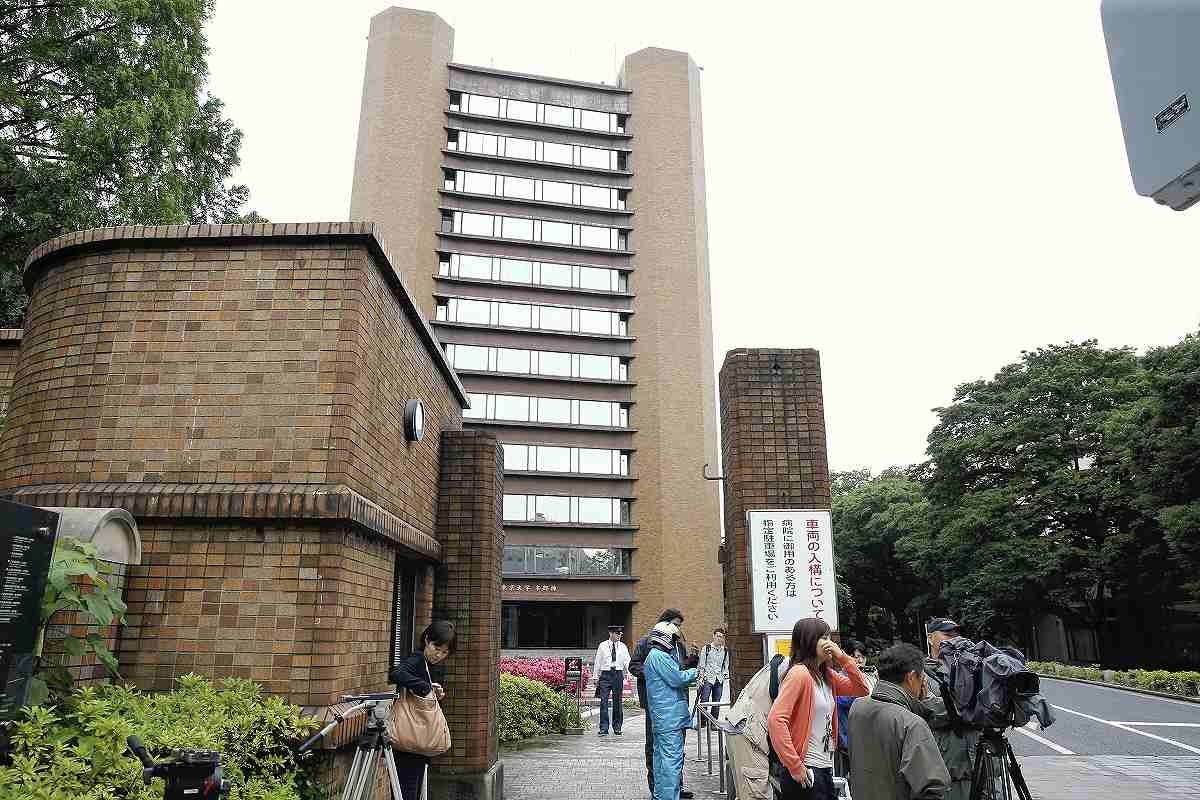Ministry to Keep Tabs on Declined Organ Donations; Action Spurred by Fear Public Trust Will Be Lost

The University of Tokyo Hospital in Bunkyo Ward, Tokyo
16:55 JST, May 31, 2024
The Health, Labor and Welfare Ministry plans to keep closer tabs on all medical institutions performing organ transplants, after a series of incidents in which major university hospitals had to decline organ donations from brain-dead donors due to a lack of beds, among other reasons.
The ministry admitted Thursday that it had not been aware of the issue. To understand the problem, it will receive reports on the number of declined organs and the reasons for each rejection via the Japan Organ Transplant Network (JOT), an organ mediation agency.
The plan was unveiled when Hiroko Otsubo, the head of the ministry’s health service and environmental health bureau, answered a question from Satoshi Umemura, an upper house member for Nippon Ishin (Japan Innovation Party), at a meeting of the House of Councillors’ Committee on Health, Welfare and Labor on Thursday.
As of February, there were 11 facilities each for heart and lung transplants, 23 for liver transplants, 21 for pancreas transplants, 13 for small bowel transplants and 122 for kidney transplants. The JOT procures organs via these facilities for patients waiting for transplants.
The declined organ donations were revealed in a report by The Yomiuri Shimbun and a subsequent survey by the Japan Society for Transplantation (JST). However, since the survey was limited to hospitals at three universities — the University of Tokyo, Kyoto University and Tohoku University — the situation at other transplant facilities is unclear.
According to Otsubo, every time a transplant facility declines to accept an organ, it reports its reasons for doing so to the JOT. However, there is no system by which the number of declined organs and the reasons for rejection are reported to the health ministry.
“We will have the JOT report the number of such cases and the reasons [for those cases] to the government every year,” Otsubo said.
The upper house committee’s leaders are expected to discuss whether to have the ministry report the information. The ministry plans to make such reports when requested.
At the day’s meeting, Health, Labor and Welfare Minister Keizo Takemi was asked how he saw the issue. “It is extremely unfortunate that we can’t keep up with the increasing number of donated organs. To ensure smooth transplants, we hope to work with relevant academic organizations to address the issue,” he said.
According to the JST’s survey, hospitals at the three universities declined donations of 62 organs in 2023 — specifically, 36 lungs, 16 livers and 10 hearts. Asked why, and with multiple answers allowed, a common reason was a lack of facilities and staff, with 20 transplants not taking place due to a “lack of vacancies in intensive-care units” and 12 being rejected because operating rooms were not ready.
Govt moves to avoid loss of trust
The government had until now been cautious on the issue of organ transplant facilities turning down organ donations, saying that medical systems for transplants should be developed by academic societies and other organizations.
The government’s decision to start keeping tabs on organ acceptance at all transplant facilities seems to reflect a fear that trust could be lost with the public, when that trust is needed to promote medical transplants.
The move is a step forward on the issue, which was exposed by a report in The Yomiuri Shimbun on New Year’s Day, and will help clarify how transplant facilities have had to decline organ donations.
The order in which organs donated from brain-dead donors are mediated is determined by strict criteria.
Of the 62 cases in which hospitals at the three universities refused to perform transplants, 54 organs were transplanted to lower priority patients at other facilities, according to an emergency survey conducted by the Japan Society for Transplantation.
The remaining eight organs were not used for transplants because other facilities rejected them for medical reasons.
During Diet questioning on Thursday, Umemura criticized the government. “The fairness stipulated in the Organ Transplant Law has not been guaranteed, and this is an extremely serious problem,” he said.
It is hoped that the government will clarify the situation as soon as possible and take effective measures to deal with the problem.
Top Articles in Politics
-

Japan PM Takaichi’s Cabinet Resigns en Masse
-

Sanae Takaichi Elected Prime Minister of Japan; Keeps All Cabinet Appointees from Previous Term
-

Japan’s Govt to Submit Road Map for Growth Strategy in March, PM Takaichi to Announce in Upcoming Policy Speech
-

LDP Wins Historic Landslide Victory
-

LDP Wins Landslide Victory, Secures Single-party Majority; Ruling Coalition with JIP Poised to Secure Over 300 seats (UPDATE 1)
JN ACCESS RANKING
-

Producer Behind Pop Group XG Arrested for Cocaine Possession
-

Japan PM Takaichi’s Cabinet Resigns en Masse
-

Man Infected with Measles Reportedly Dined at Restaurant in Tokyo Station
-

Israeli Ambassador to Japan Speaks about Japan’s Role in the Reconstruction of Gaza
-

Videos Plagiarized, Reposted with False Subtitles Claiming ‘Ryukyu Belongs to China’; Anti-China False Information Also Posted in Japan



























